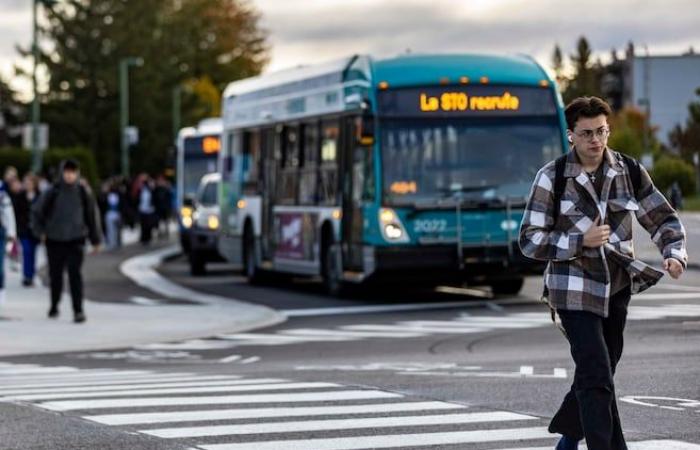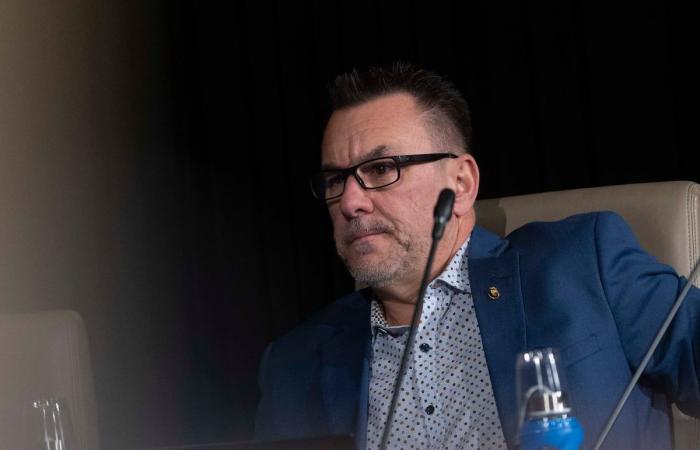These millions of dollars which did not appear in the revenue column of the Gatinois public carrier when its 2025 budget was adopted in December, come from the residual envelope of emergency aid offered to the transport company. transportation by the Quebec government to get through the pandemic. The STO had been trying in vain for months to get its hands on this unused money. The negotiations finally concluded on December 18 with the signing of a ministerial decree authorizing him to spend the tidy sum.
“It’s true, it does not appear in our 2025 budget, it was already adopted when Quebec confirmed that we could use this amount,” confirms STO spokesperson Yannick Boursier. However, this is a non-recurring sum of money.”
The STO board of directors (Etienne Ranger/Archives Le Droit)
Discussions regarding the use of this surplus are already well underway in the STO management offices, notes Mr. Boursier. No decision has yet been made, but part of the money could allow the STO to bring forward the introduction of certain service improvements that it intended to implement in 2026 thanks to the registration tax. “We could finance these improvements faster than expected, from 2025, and then use recurring sums from the registration tax to continue.”
The sum could also help offset increases in expenses linked to the maintenance of a fleet of vehicles which continues to age, while awaiting the delivery of new electric buses, the supply of which is slower than expected. “Maintenance of older buses costs more and the cost of spare parts is also increasing,” notes Mr. Boursier.
Grinding of teeth
The existence of this surprise surplus in the STO coffers causes Masson-Angers councilor Mario Aubé to gnash his teeth. The latter strongly opposed the imposition of a registration tax of $60 in 2025 and $90 from 2026.
Mario Aubé, head of the Mario Aubé Team and councilor for the Masson-Angers district, opposed the imposition of a $60 tax on registration to finance the STO. (Simon Séguin-Bertrand/Archives Le Droit)
“If we had known that the STO had access to these 18 million, it is obvious that the debate on the registration tax and the price increases would have been very different,” says Team leader Mario Aubé. I repeated that it should not be up to motorists solely to absorb the STO’s deficits and finance new services, and I still think so. There, our hands are tied, the registration tax has already been voted on. With these 18 million surplus and a deficit already eliminated, I hope that the STO will quickly improve its services, in the east as in the west.
The president of the STO, Jocelyn Blondin, agrees that the debate on the imposition of an additional tax of $60 on registration would probably have had a different flavor if emergency aid surpluses had been made available more early by the Quebec government.
“It might have delayed the imposition of the tax for a year, but no more because we know that we need the money that will result from it to finance new services on a recurring basis,” he specifies. . There, this money could make it possible to offer better services more quickly. This is very good news. We are very happy. If this money is available today, it is because the STO managed its budget well during the pandemic.”







